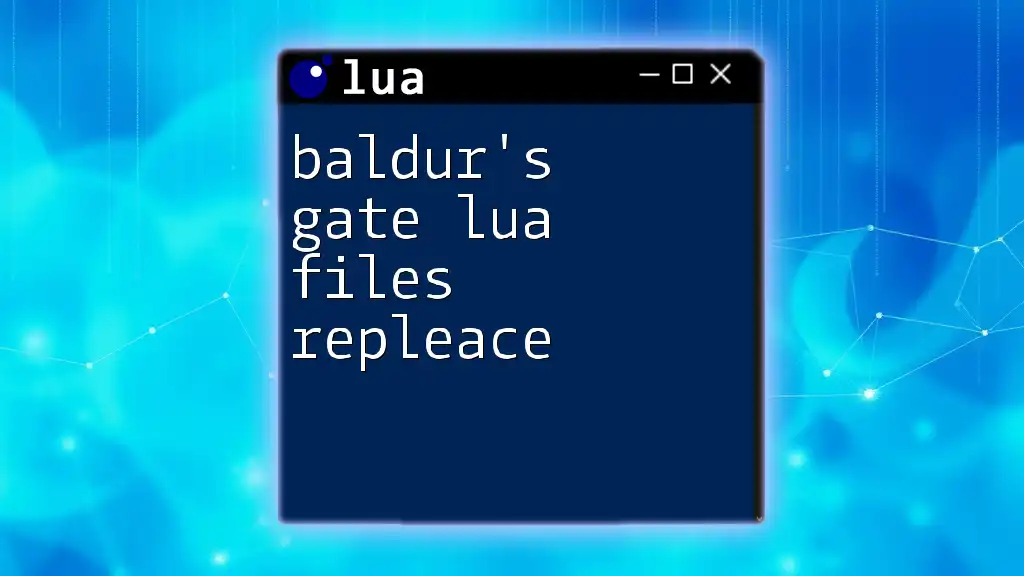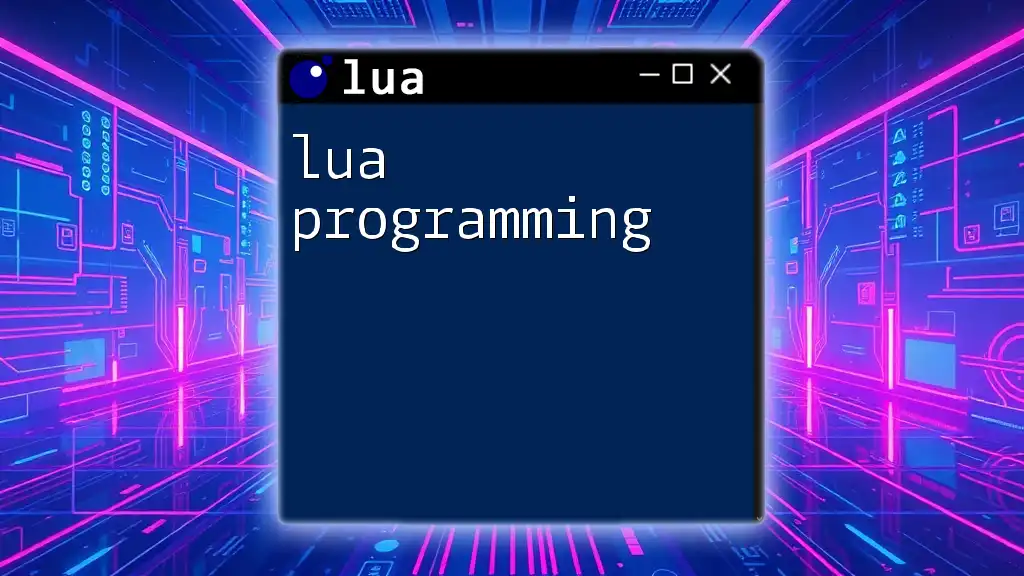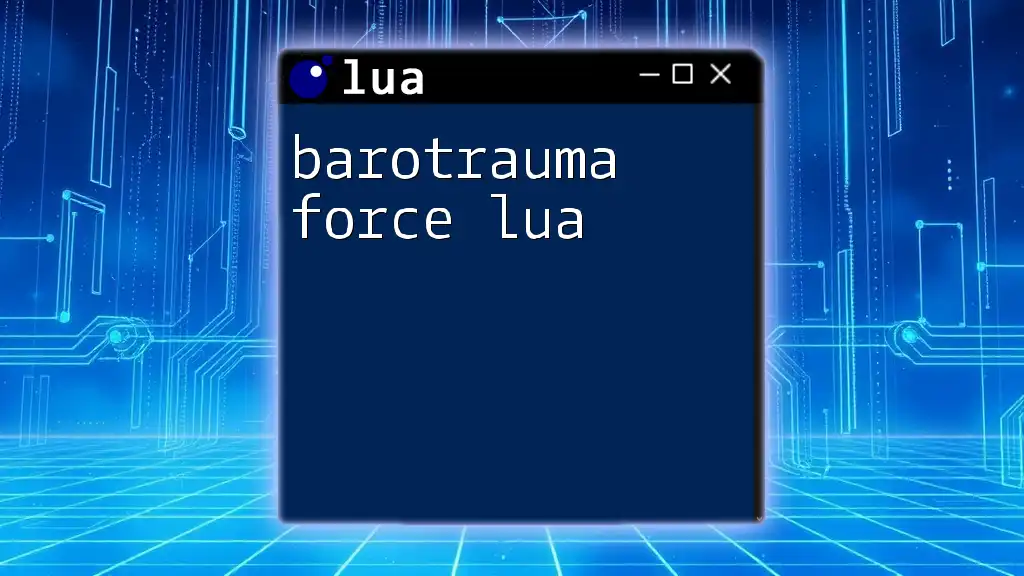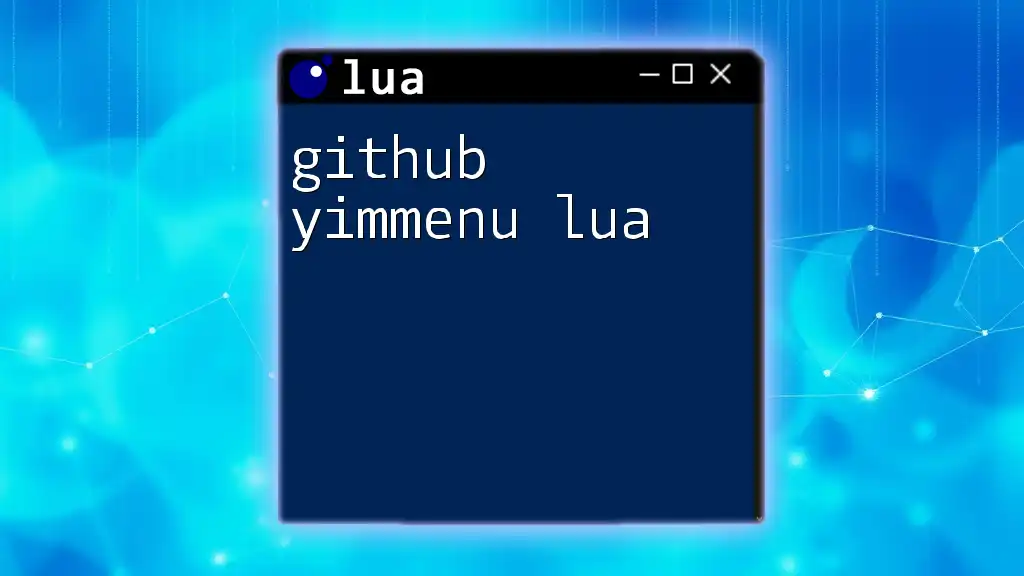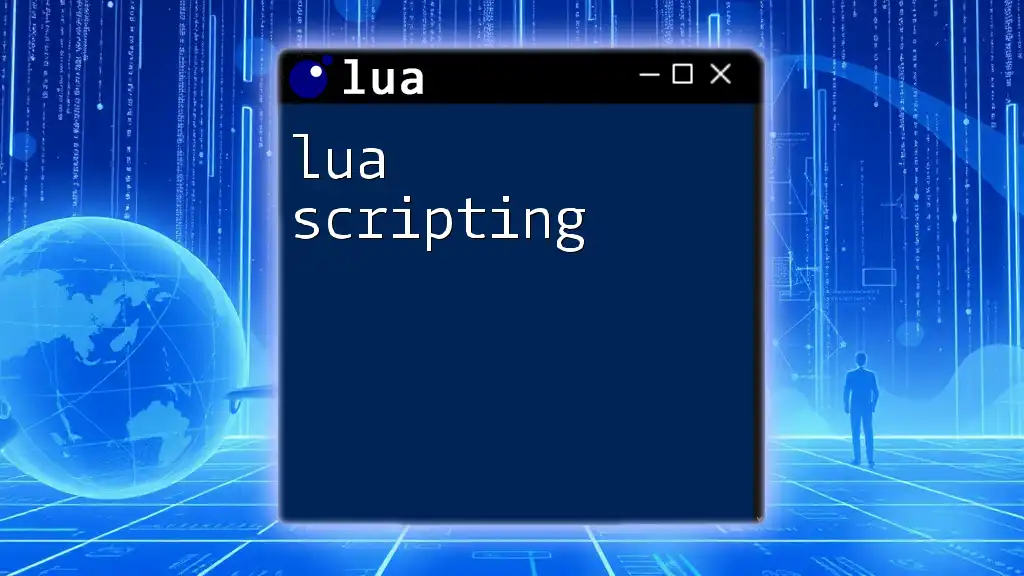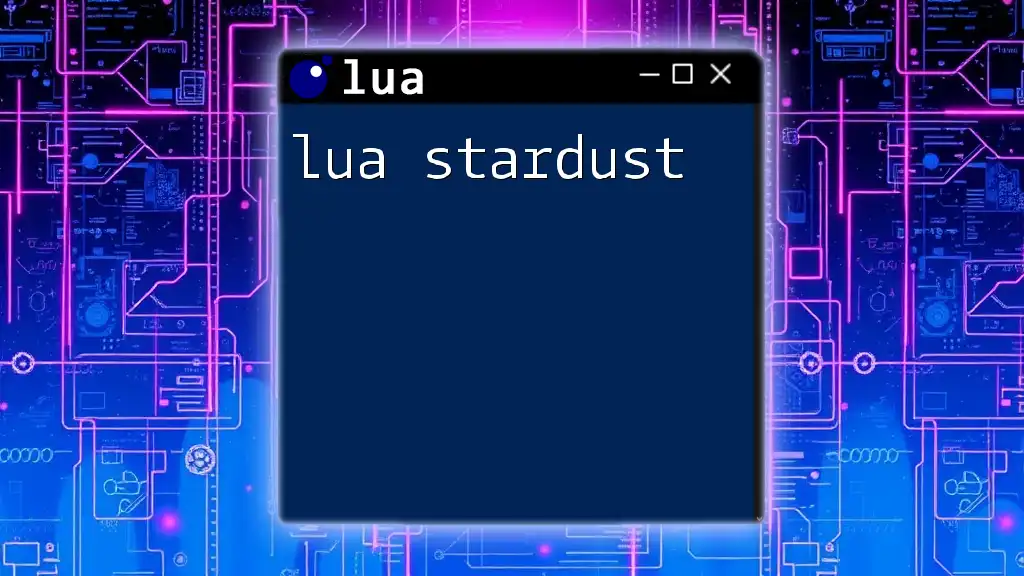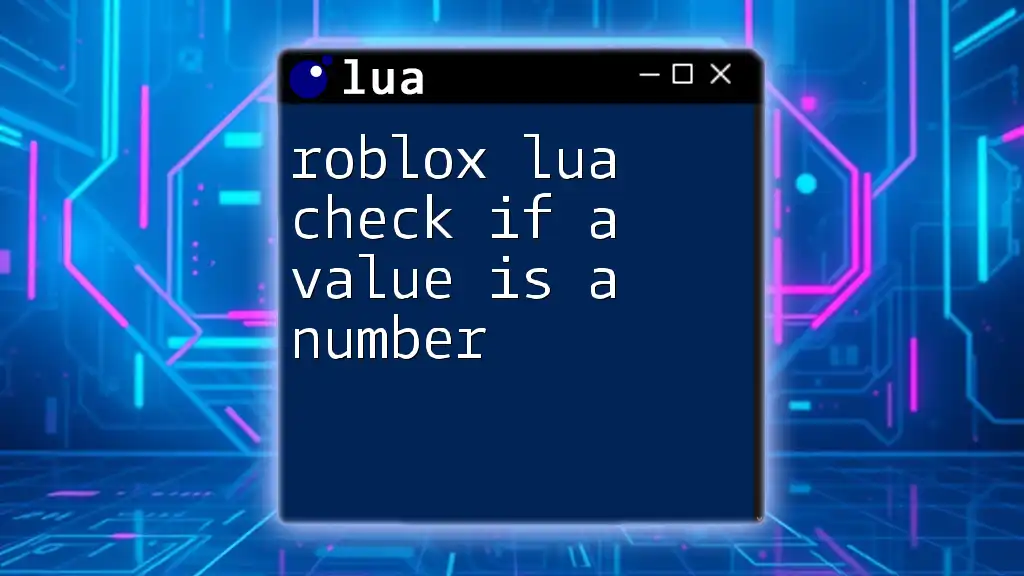In Baldur's Gate, lua files can be replaced to modify game behavior or enhance gameplay through custom scripts.
Here's a simple code snippet to replace a lua file in a typical Baldur's Gate modding setup:
-- Example: Replacing a function in a lua file
function ReplaceFunction()
originalFunction = FunctionName
function FunctionName()
-- Custom behavior here
end
end
Understanding Lua Files
What Are Lua Files?
Lua files are powerful scripting tools within Baldur's Gate, allowing players to modify the game's mechanics and features. They utilize a lightweight scripting language that is easy to learn, making it accessible for beginners and advanced developers alike. In Baldur's Gate, Lua scripts help define gameplay elements such as character behavior, AI functions, and even quests.
The Structure of Lua Files
A typical Lua file contains several key components: functions, variables, and tables. Understanding these elements is crucial for effective scripting.
- Functions are reusable blocks of code that perform specific tasks. For example, a function could adjust a character's health points.
- Variables store data temporarily. They might be used to track scores or player states during gameplay.
- Tables allow for the storage of multiple value types and are essential for grouping related data, akin to arrays in other programming languages.
Example Lua file structure in Baldur's Gate:
function increase_health(character, amount)
character.health = character.health + amount
end
Common Uses of Lua Files in Baldur's Gate
Lua files can modify a vast array of gameplay mechanics. Some common applications include:
- Quests: Implementing custom quests or modifying existing ones to enhance narrative depth.
- Character Stats: Changing attributes such as strength, dexterity, or experience points to create unique gameplay experiences.
- Enemy Behavior: Tweaking enemy AI to provide varied challenges to players.
Some popular mods leverage Lua scripting to create modified gameplay experiences, showcasing the versatility of Lua files.
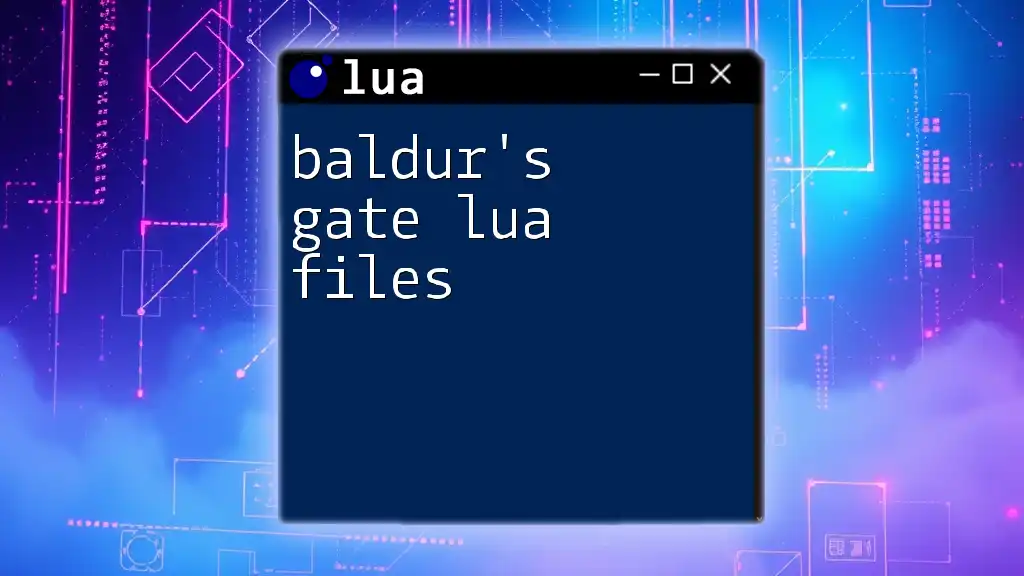
Replacing Lua Files in Baldur's Gate
Why Replace Lua Files?
There are several compelling reasons to replace Lua files in Baldur's Gate:
- Personalization: Tailor the game to fit your preferences with custom scripts.
- Bug Fixes: Correct issues in original files that may impact gameplay.
- Enhancing Gameplay: Implement new features or adjustments for a richer experience.
Preparations Before Replacing Lua Files
Before diving into Lua file replacement, having the right tools is essential. Here’s a quick checklist:
- Text Editors: Utilize powerful text editors such as Notepad++ or Visual Studio Code to edit Lua files effectively.
- Backup Your Original Files: This is a critical step, ensuring you can restore your game to its original state if something goes awry. Always save copies of your original Lua files before making changes.
Steps to Replace Lua Files
Step 1: Locate the Lua Files
The first step is to locate the Lua files in your Baldur's Gate installation. Typically, these files can be found within the game’s directory in a designated "scripts" or "lua" subfolder.
Step 2: Make a Backup
Before replacing any Lua file, create a backup of the original. Simply copy the Lua files you intend to replace and store them in a separate folder. This will safeguard your game from potential issues stemming from the modification process.
Step 3: Obtain New Lua Files
Next, you’ll want to find new or modified Lua files. There are numerous resources available, including:
- Community Forums: Engage with other players and modders who share their creations and scripts.
- Modding Websites: Explore dedicated modding sites that host an array of Lua modifications.
Step 4: Replace the Lua Files
To replace a Lua file, simply copy the new one and paste it into the corresponding directory, ensuring it overwrites the old file. Using code to automate file replacements could look something like this:
-- Sample Lua script to replace a file
file.replace("original_file.lua", "modified_file.lua")
Step 5: Test the Changes
Start the game to see if the new Lua file functions as intended. Make sure to check for any errors or gameplay bugs that may arise after replacing the file. Testing is an essential part of the modification process.
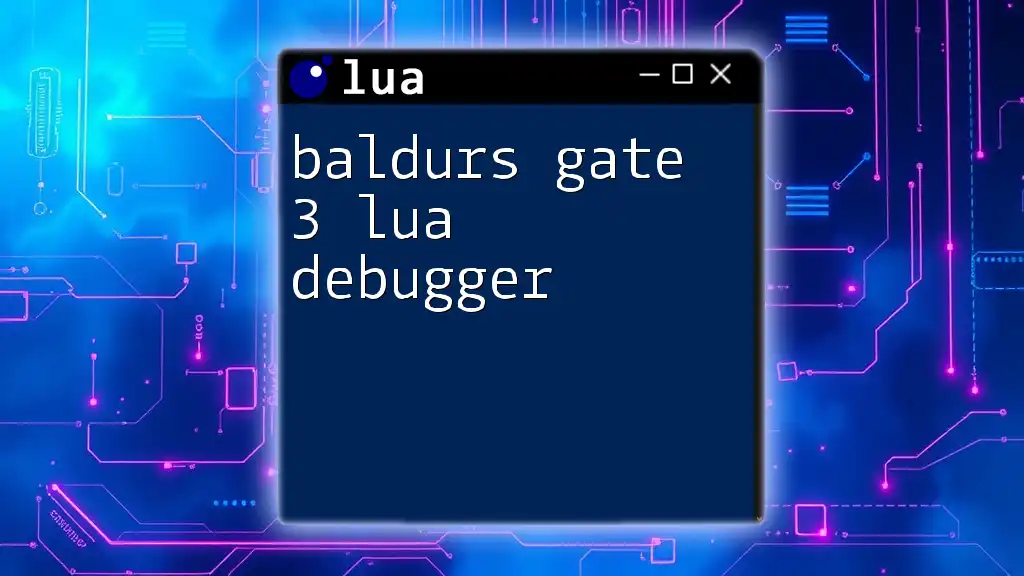
Troubleshooting Common Issues
Errors and Debugging Tips
After replacing Lua files, it’s common to encounter issues. Here are some frequent errors you might face:
- File Not Found: Double-check the file path and ensure you are placing the new file in the correct directory.
- Execution Errors: Look for syntax errors or missing components in your modified Lua scripts.
To troubleshoot, revert to your original backups and systematically introduce changes to pinpoint the source of the issue.
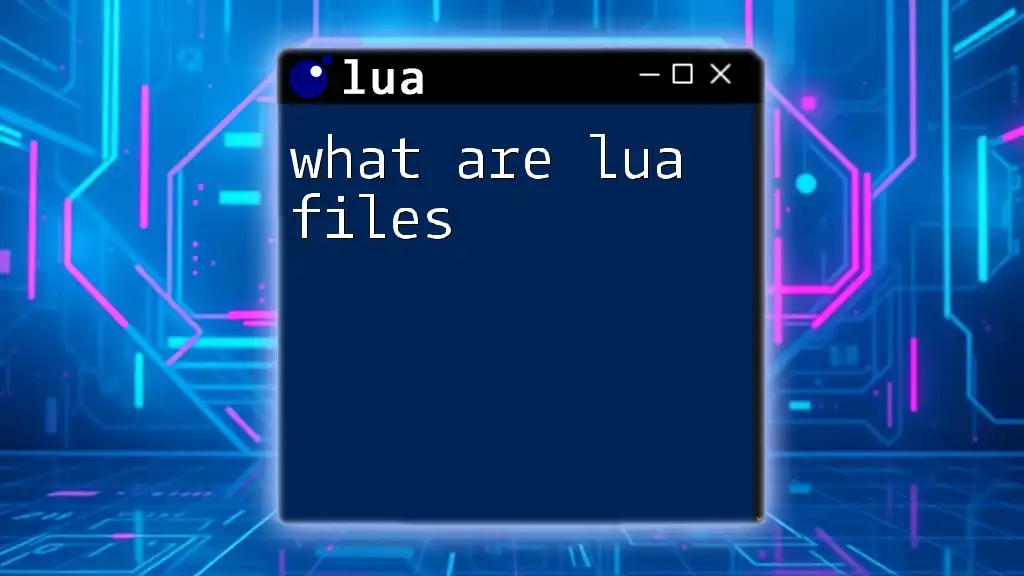
Advanced Lua Techniques
Enhancing Gameplay with Custom Lua Scripts
Once you’ve grasped the basics of replacing Lua files, consider writing your own scripts to enrich gameplay even further. For example, a simple script to increase a character's health might look like this:
-- Simple example: Increase Player Health
PlayerHealth = PlayerHealth + 50
Integrating Lua with Other Modding Tools
To take your modding to the next level, explore third-party tools that can enhance your Lua scripting capabilities. For instance, using a mod manager alongside Lua can streamline file management and testing.
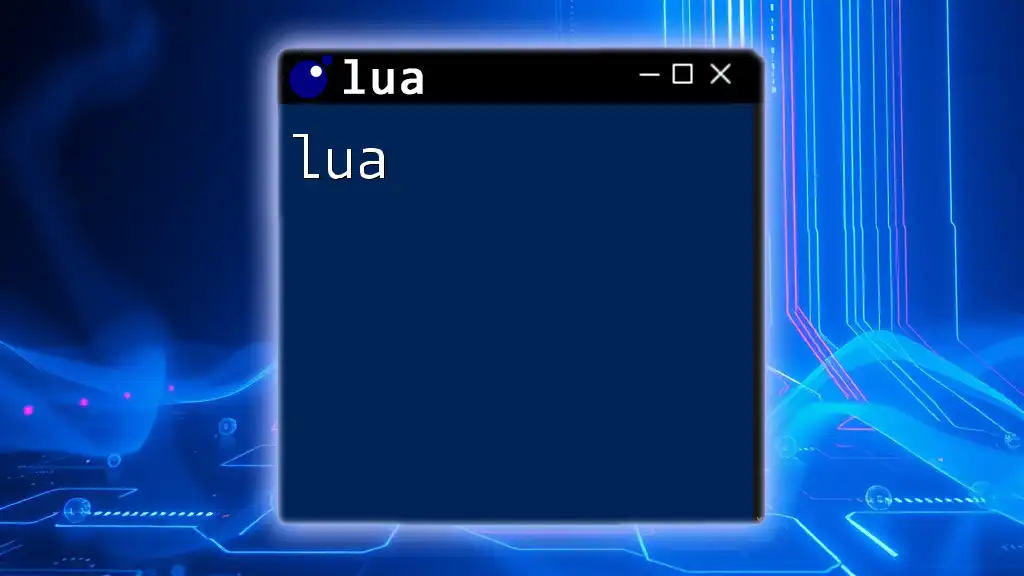
Conclusion
Lua files play a pivotal role in customizing and enhancing the Baldur’s Gate experience. Whether you’re fixing bugs or creating entirely new gameplay mechanics, understanding baldur's gate lua files replace is essential for any modder. Remember to engage with the community and explore additional resources to expand your knowledge—your journey into the rich realm of Lua scripting has just begun!
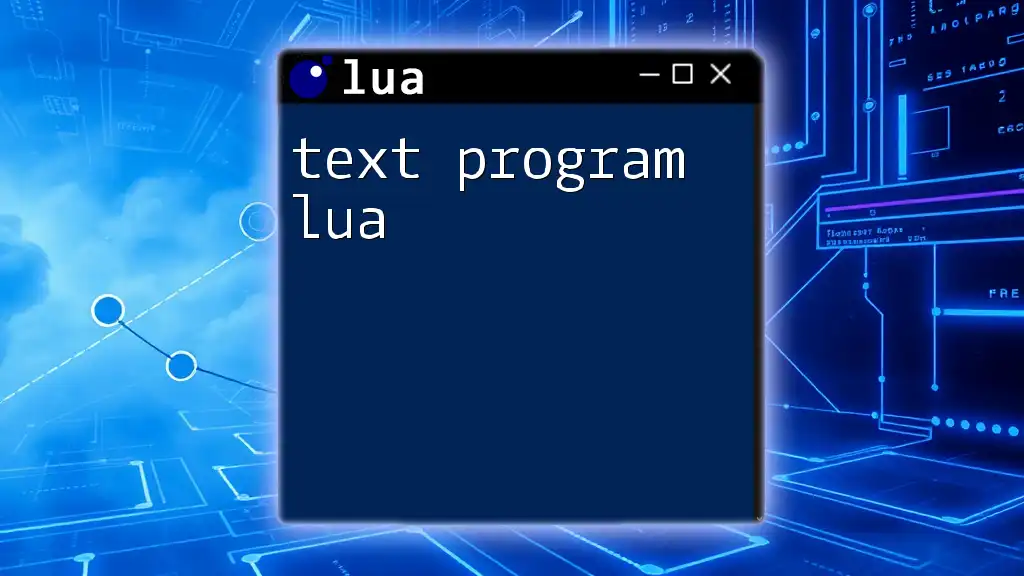
Additional Resources
For further learning, consider exploring recommended books and online courses focusing on Lua scripting. Engage with modding communities and forums for support, and don’t hesitate to ask questions as you embark on your modding adventures.

